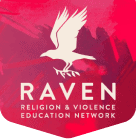Subscribe: Apple Podcasts | Android | RSS |
In this episode of the RavenCast, Suzanne Ross and I discuss a New York Times article about Facebook fueling a desire for revenge. You can watch the video of the conversation below, listen to the MP3 above, or you can subscribe to the RavenCast on iTunes, Stitcher Radio, or Podbean.
Show Notes
Facebook has been in the news lately for bad reasons.
One New York Times article, titled “Where Countries are Tinderboxes and Facebook is the Match,” tracks places in which rumors on Facebook led to real violence and lynchings. How much responsibility does Facebook have in these situations?
The article talks about an incident in Sri Lanka. The conflict fell along religious lines. There are rumors spreading rapidly on Facebook that the Muslim minority is trying to sterilize the Buddhist majority.
Rene Girard’s book Violence and the Sacred explores what happens when a community experiences a sacrificial crisis. Human groups typically function through scapegoating another group. This helps violence to be kept outside of the community as inner conflicts are deflecting upon other groups. The difference between “us” and “them” are stark as people within the community are good and can be trusted, while bad guys are out there with all their violence.
But a sacrificial crisis occurs when the “enemy” is thought to be within and there is a loss of distinctions between “us” and “them.”
… a sacrificial crisis occurs when the “enemy” is thought to be within and there is a loss of distinctions between “us” and “them.”
Facebook’s Responsibility
Many country officials report posts that incite violence to Facebook. Facebook employees either has a very slow response time, or they say that the posts inciting violence do not contradict Facebook’s policies.
What is Facebook’s responsibility in this? Facebook knows that users are more inclined to react and share posts that are negative. So, it promotes those negative posts. Facebook does have a responsibility to change their policies.
But what is our responsibility on Facebook? What does it say about Facebook users that the most engaging posts on Facebook are negative, violence inciting posts? If we stopped reacting to those posts, would Facebook would change its ways.
The Olive
Branch
Take A Breath with Us
Our weekly newsletter creates a space to take a breath. Once we slow down, we can see the way desire, imitation, and conflict operate in our lives and in the world, and begin to create peace. In addition to the newsletter, you will receive the free "Unlearn the Bible" ebook when you subscribe.
Three Ways to Tell When You are Scapegoating
When we get caught up in rumor, we are probably scapegoating someone. Here are three ways to tell if you are caught up in scapegoating:
- You feel really good about hating someone else. The most efficient way to find social cohesion is to unite against a common enemy. This makes us feel good and gives us a sense of belonging. Belonging to a group is a good thing, but when we belong to a group that is against another gives us a cheap sense of belonging.
- You are right and you know who is wrong and it’s always someone else who is wrong.
- There are some voices that we should not listen to.
Judicial System
The NYT article states that in developing countries, justice systems are often weak. When justice systems are weak, people seek vigilante justice, which devolves into revenge. A strong judicial system helps stop this cycle of revenge. At its best, judicial systems seek to find a truly guilty person. No judicial system is perfect, as seen in the American judicial system that disproportionately harms people of color. This means that while a judicial system is better than vigilante justice, the American judicial system has a long way to go to provide justice for all.
